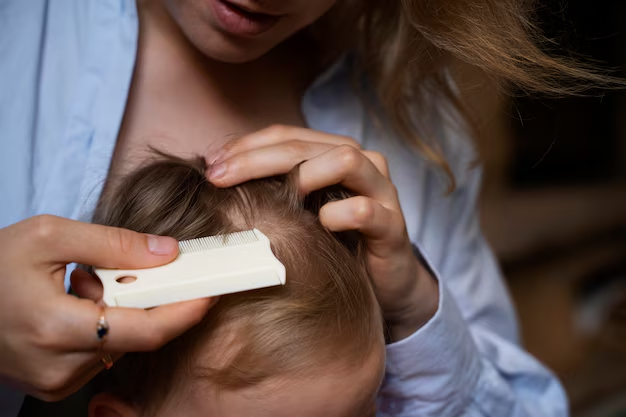Unraveling Scalp Psoriasis: Understanding Causes and Impacts
Imagine an itch that won't go away, a constant irritation on your scalp that defies conventional solutions. This scenario is all too familiar for those grappling with scalp psoriasis, a complex condition that goes beyond mere skin irritation. To truly comprehend what causes scalp psoriasis, we need to delve into its multifaceted nature, exploring the biological, environmental, and lifestyle factors at play. This comprehensive guide aims to shed light on these aspects and provide a foundation for understanding this challenging condition.
The Biological Basis of Scalp Psoriasis
Scalp psoriasis is primarily an autoimmune condition, meaning it results from an overactive immune system. In this case, the body's defense system mistakenly targets its own cells, specifically those on the scalp. This attack leads to the rapid acceleration of skin cell production, which then accumulates in dry, flaky patches.
Genetics: A Key Component
Hereditary Factors: If psoriasis runs in your family, you may be predisposed to it. Certain genetic markers have been identified, linking family history to a higher risk of developing the condition.
Gene Mutations: Specific mutations in genes related to the immune system can trigger the onset of psoriasis, potentially explaining why it appears at seemingly random times in an individual's life.
Environmental Triggers: Catalysts for Flare-ups
While genetic predisposition sets the stage, environmental factors often trigger the manifestation of psoriasis symptoms. Here are some common environmental triggers:
Stress and Mental Health
Psychological Impact: Stress is a significant trigger for psoriasis flare-ups. When stressed, the body produces chemicals that can exacerbate inflammation, worsening psoriasis symptoms.
Stress Management Techniques: Employing relaxation techniques like yoga and meditation can mitigate stress, potentially reducing flare-up frequency.
Weather and Climate
Cold Weather: Dry and cold weather can worsen psoriasis by drying out the skin, making it more sensitive and prone to irritation.
Sunlight Exposure: On the flip side, moderate sun exposure can help some sufferers, as UV light can slow down skin cell production.
Infections and Illness
Strep Throat: Certain infections like strep throat have been observed to trigger psoriasis, particularly in children and young adults.
Immune System Responses: Illness can stress the immune system, prompting it to attack healthy skin cells, thereby worsening psoriasis.
Lifestyle Choices and Their Impact
Lifestyle factors can significantly influence the prevalence and severity of psoriasis. It's essential to consider how daily habits might be contributing to the condition.
Diet and Nutrition
Inflammatory Foods: Consumption of inflammatory foods such as processed sugars and red meats can increase psoriasis severity.
Anti-Inflammatory Diet: Incorporating foods rich in omega-3 fatty acids and antioxidants, like fish and leafy greens, may help reduce symptoms.
Alcohol and Smoking
Alcohol Consumption: Excessive alcohol intake is linked to a higher incidence rate of psoriasis outbreaks.
Smoking: Nicotine can alter immune function and skin cell turnover, contributing to psoriasis.
Hormonal Changes: A Hidden Factor
Hormonal fluctuations can also play a role in triggering psoriasis. Life events like puberty, pregnancy, and menopause come with significant hormonal changes that can influence the skin's health.
Puberty and Psoriasis: The hormonal swings during puberty can trigger the initial onset of psoriasis or exacerbate existing symptoms.
Pregnancy and Postpartum: Some women experience changes in their psoriasis symptoms during pregnancy, either improvement or worsening, due to hormonal shifts.
Everyday Impacts: Living with Scalp Psoriasis
Living with scalp psoriasis doesn't just affect physical health; it can also impact emotional well-being and quality of life.
Social and Emotional Repercussions
Self-Esteem Issues: Visible flakes and irritation can lead to self-consciousness and anxiety, impacting social interactions.
Support Networks: Connecting with support groups or counseling can provide emotional relief and understanding.
Practical Challenges
Choosing the Right Products: Selecting gentle, sulfate-free shampoos and conditioners can minimize irritation.
Daily Routine Adjustments: Modifying hair care routines and gently managing symptoms can help maintain scalp health.
Breaking Misconceptions: Understanding Beyond the Myths
Misconceptions about scalp psoriasis can lead to misunderstanding and stigmatization. Here are some common myths debunked:
Myth 1: Psoriasis is contagious.
Fact: Psoriasis is not contagious; it cannot be spread from person to person.Myth 2: It's just a skin condition.
Fact: Psoriasis is a systemic, immune-mediated condition that can affect the entire body.
Looking Forward: Empowering Knowledge and Understanding
Understanding the etiological factors of scalp psoriasis is critical — not just for those who suffer but for society as a whole. Knowledge fosters empathy and drives research efforts toward better treatments and support systems.
In conclusion, scalp psoriasis is a multifaceted condition influenced by genetics, environmental triggers, lifestyle choices, and hormonal changes. While there is no cure, managing controllable factors and staying informed empowers individuals to live fulfilling lives with minimal disruption from the condition.
Summary in Bullet Points
- 🔍 Autoimmune Disorder: Scalp psoriasis stems from an overactive immune system attacking the scalp.
- 👨👩👧👦 Genetic Links: Family history can increase one's risk; specific genetic markers are involved.
- 🌦️ Environmental Triggers: Stress, cold weather, and infections can exacerbate symptoms.
- 🍽️ Lifestyle Influence: A diet high in anti-inflammatory foods may reduce symptoms; avoiding smoking and excessive alcohol is advised.
- 🤰 Hormonal Changes: Life events affecting hormones can influence psoriasis flare-ups.
- 🧴 Practical Advice: Use gentle hair care products and consider adjusting routines to manage symptoms.
- 🔧 Myths Busted: Psoriasis is not contagious and goes beyond just being a skin condition.
By understanding and managing triggers, adopting healthy lifestyle changes, and debunking myths, individuals can navigate scalp psoriasis more effectively.

